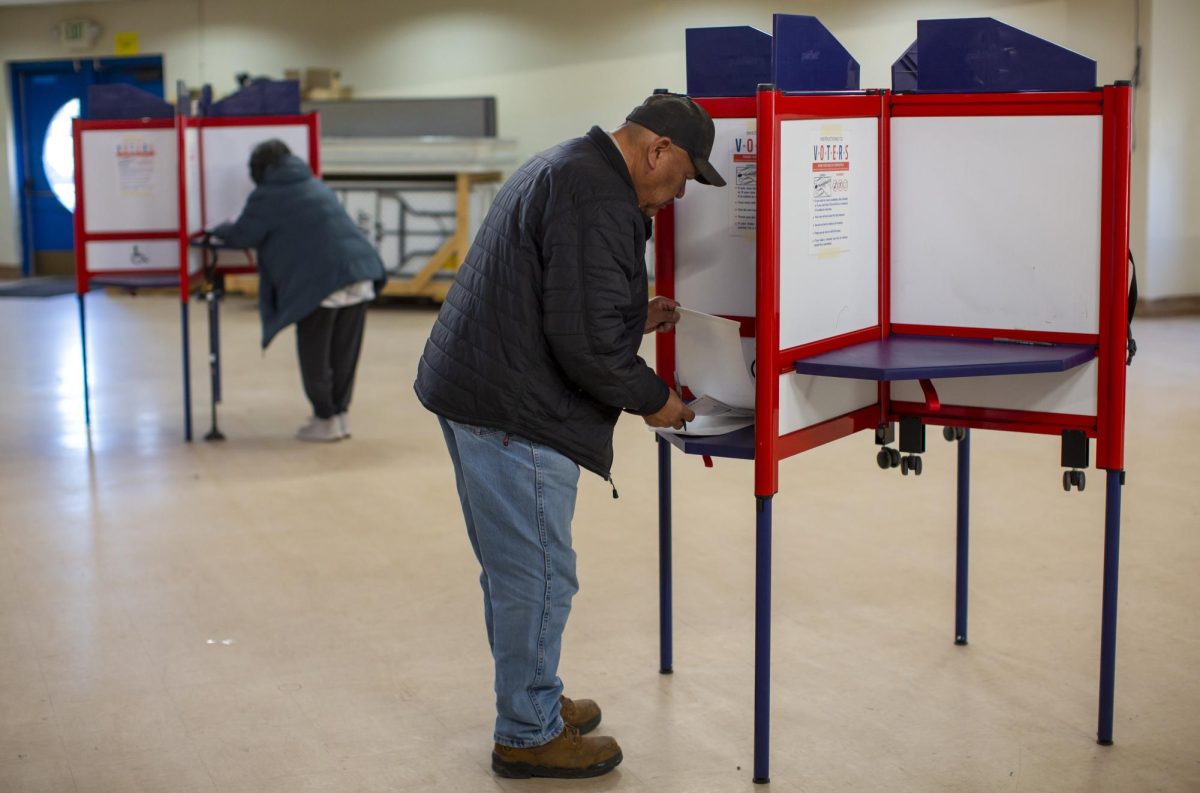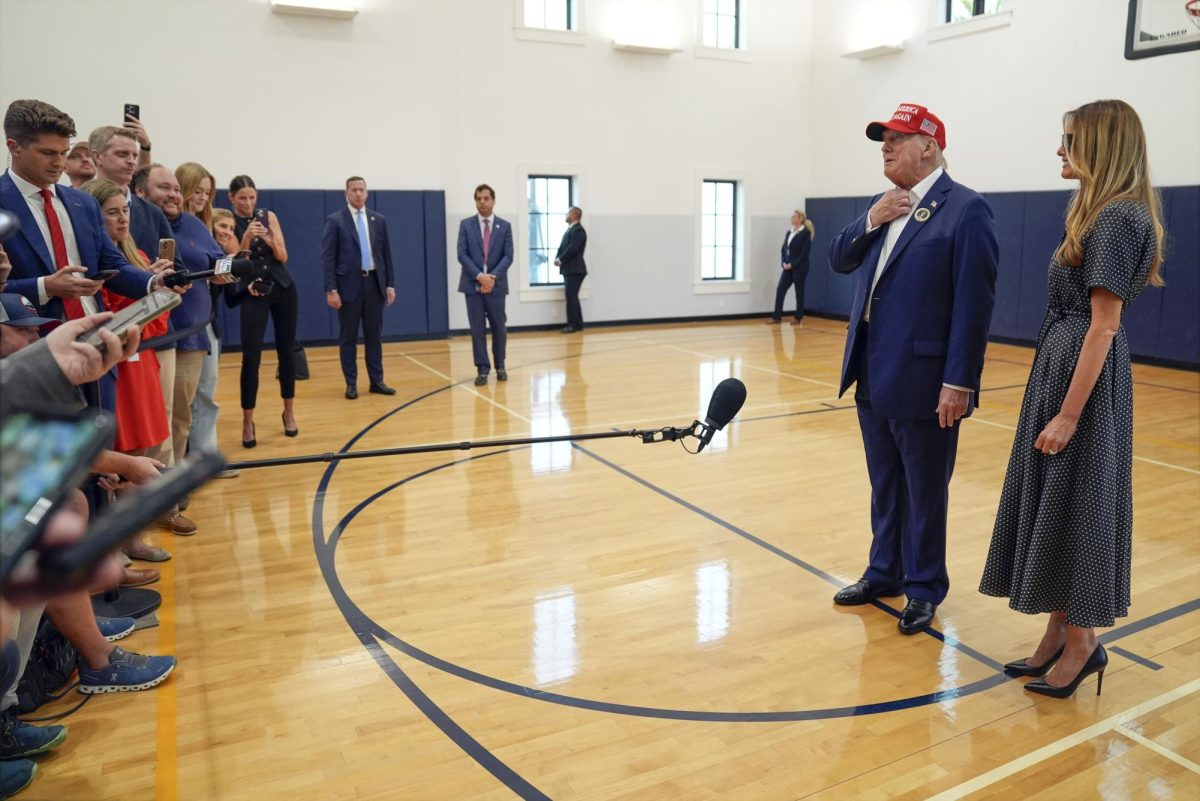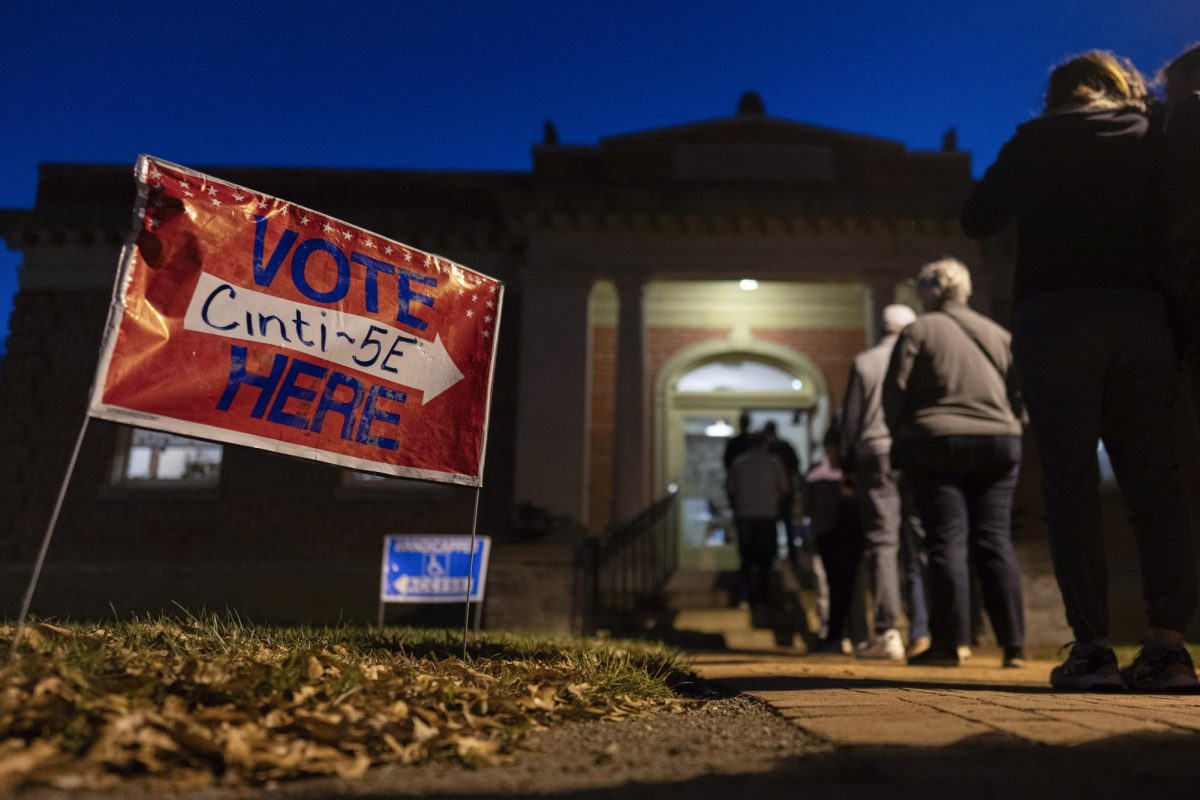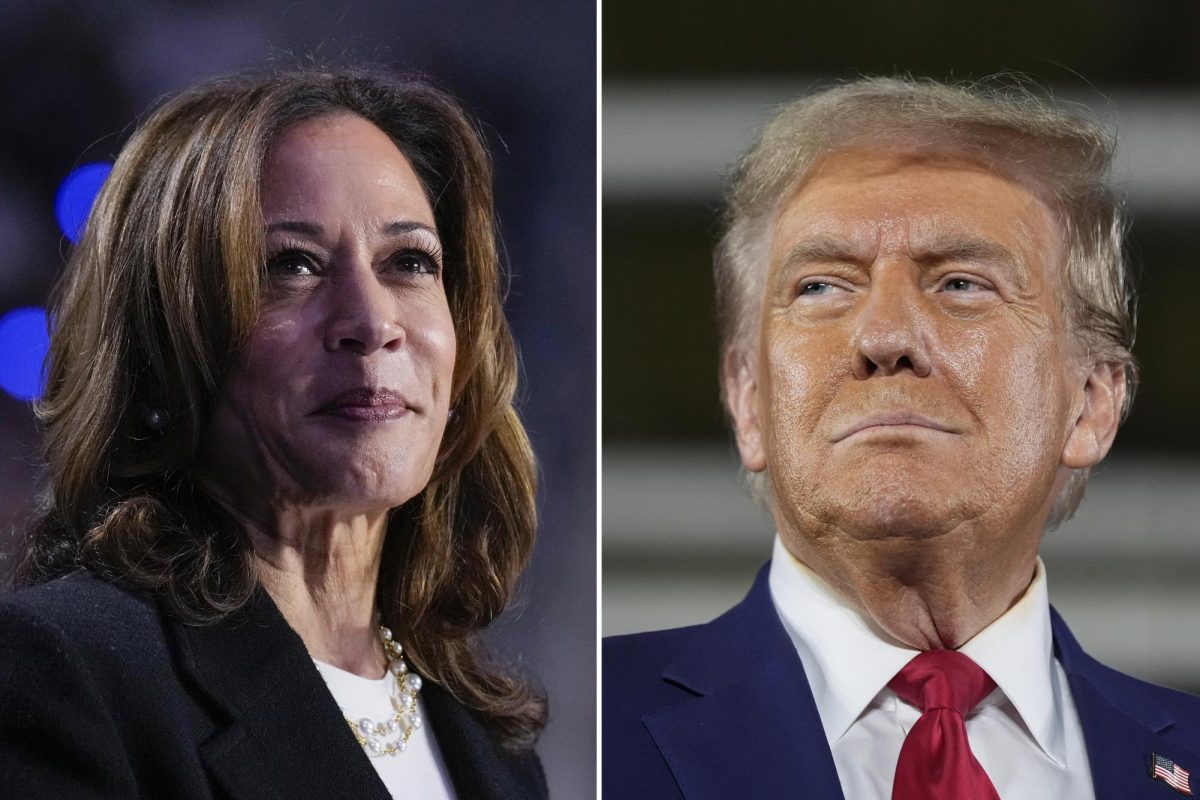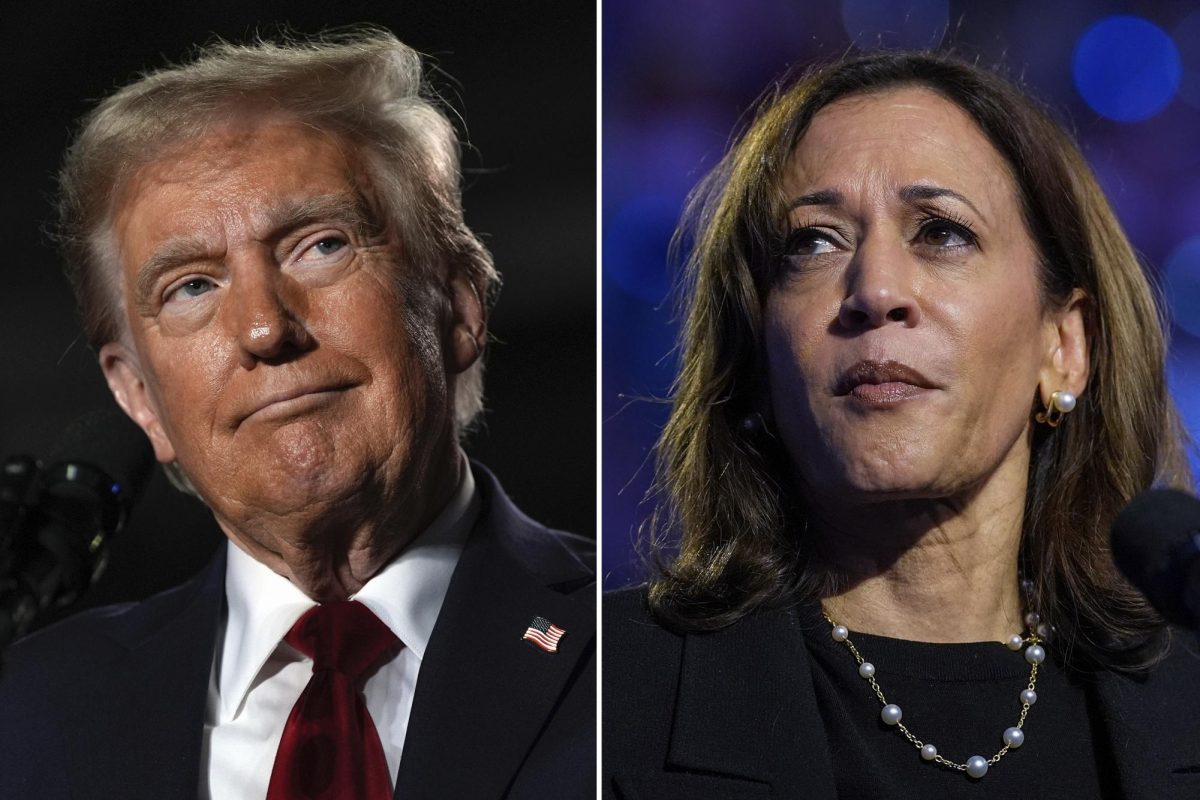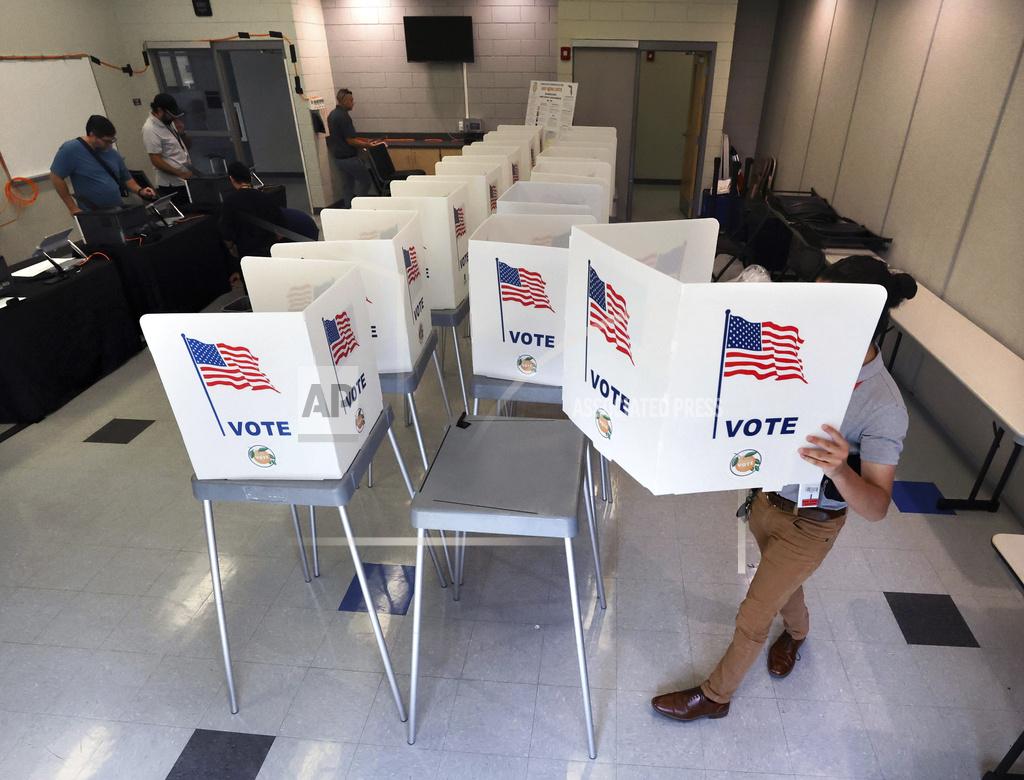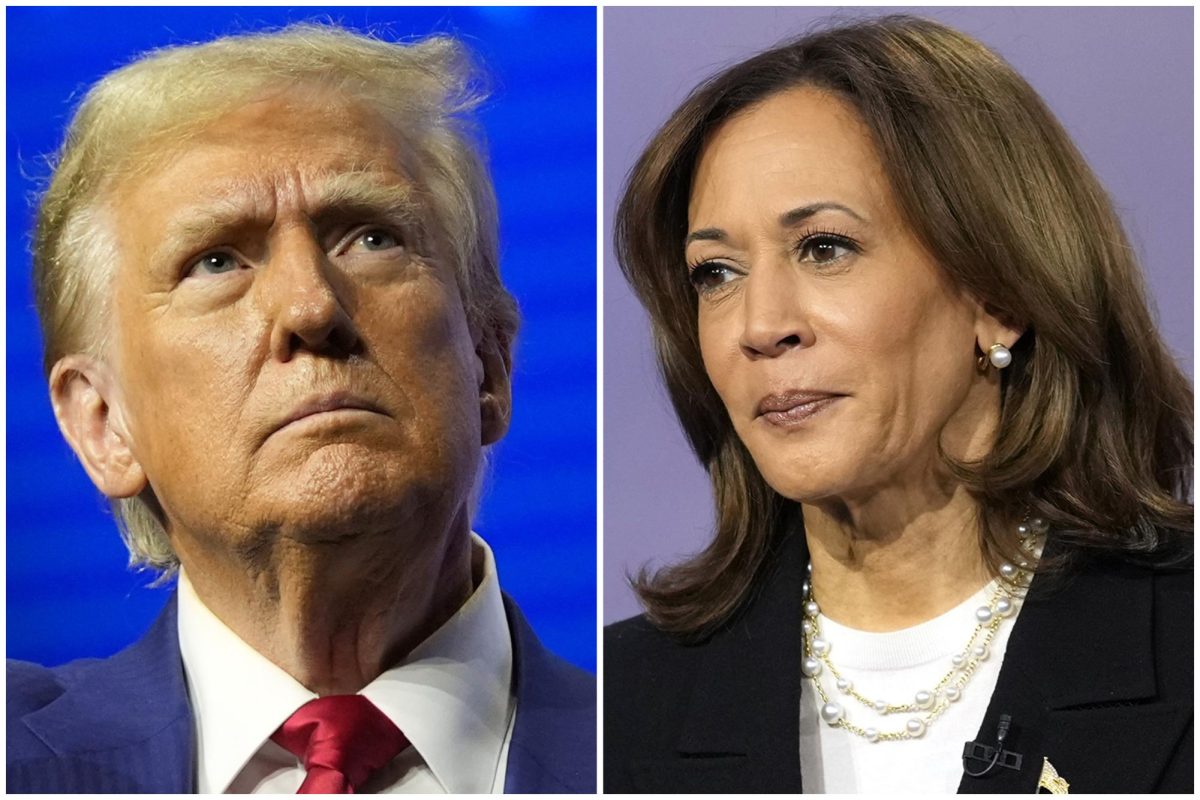There are six amendments on Florida ballots this election that, if approved, will make changes to state law on issues ranging from marijuana use to abortion access.
For enactment, each amendment needs a 60-percent voting majority to pass. Two amendments on the ballot, Amendment 3 and Amendment 4, are citizen-initiated. The rest are legislatively-referred amendments. After receiving a supermajority vote, legislatively-referred amendments must receive 60% approval from the Florida House of Representatives and the Florida Senate. This is called a joint resolution.
Voters can find the amendments on sides two and three of their ballots, listed after all other local, state and federal races.
Amendment 1: Partisan School Board Elections
Florida’s Amendment 1 will make school board elections partisan beginning in the 2026 general election. If passed, candidates for school boards would be nominated for the general election through primary elections, with their party affiliations displayed on the ballot.
Currently, Florida’s constitution requires school board elections to be nonpartisan.
Ballot Text:
No. 1 Constitutional Amendment, Article IX, Section 4 and Article XII: Partisan Election of Members of District School Boards
“Proposing amendments to the State Constitution to require members of a district school board to be elected in a partisan election rather than a nonpartisan election and to specify that the amendment only applies to elections held on or after the November 2026 general election. However, partisan primary elections may occur before the 2026 general election for purposes of nominating political party candidates to that office for placement on the 2026 general election ballot.”
What does a ‘Yes’ vote mean?
A “yes” vote for Amendment 1 supports making school board elections partisan beginning in the November 2026 general election and for primary elections to nominate the candidates for the 2026 general election.
What does a ‘No’ vote mean?
A “no” vote would oppose making school board elections partisan, which would preserve the current procedures for nonpartisan school board elections.
Who supports Amendment 1?
State Sen. Joe Gruters (R-22) expressed his support for the amendment, claiming it will promote transparency in school board elections.
“There’s no such thing as a nonpartisan race anymore. These races are partisan, and the only ones that aren’t informed are being tricked,” he said, reported by WUSF.
State Rep. Spencer Roach (R-76) also supports Amendment 1 for providing voters with sufficient information on school board candidates.
“I simply think as policymakers, we have an obligation to provide voters with as much information as possible about candidates, to include party affiliation, and let the voters make their decisions based on that information,” said Roach, reported by WUSF.
Who opposes Amendment 1?
State Representative Angie Nixon (D-13) believes Amendment 1 would make school board elections “more contentious.”
“I believe this bill is not about transparency at all,” she said in a February 2023 Florida House subcommittee meeting, reported by WUSF.
Tina Certain, chair of the Alachua County School Board, expresses concern that the legislation serves to enforce DeSantis’ policies on education.
“We’re seeing more politicization in education because of the governor of Florida’s actions. That is not rising up from local communities. It’s coming down from Tallahassee, from the governor, down,” said Certain.
When does Amendment 1 go into effect?
If passed, Amendment 1 will take effect in the Nov. 2026 general election and primary elections that nominate candidates for the 2026 general election.
Where can I learn more about Amendment 1?
Additional information regarding Amendment 1 can be found on Ballotpedia and the Florida Division of Elections webpage.
Amendment 2: Right to hunt and fish
Amendment 2 could alter the state’s constitution to include protections for hunting and fishing in Florida.
Ballot Text:
No. 2 Constitutional Amendment, Article I, Section 28: Right to Fish and Hunt
What does a ‘Yes’ vote mean?Voting “Yes” supports enabling a constitutional right to fish and hunt in Florida. Supporters of this amendment say this prevents opposers from taking the right away. What does a ‘No’ vote mean?Voting “No” opposes establishing a constitutional right to fish and hunt in Florida. Who supports Amendment 2?State senator Jim Boyd endorsed the amendment last year, saying that Florida “will not be one of those states” that outlaws fishing and hunting. Who opposes Amendment 2?Certain organizations have opposed the amendment, such as the No to 2 organization. Amendment 3: Legal use and possession of marijuanaThe legalization of recreational use and possession of marijuana is on the Florida ballot in Florida this election. Amendment 3, titled “Adult Personal Use of Marijuana,” allows adults 21 or older to possess up to 3 ounces of flour and up to 5 grams of cannabis concentrate, according to the amended text.
Currently, marijuana is only legal in Florida for those who have a Medical Marijuana ID Card, which is given to those who have a medical diagnosis. Who supports Amendment 3?Supporters believe that legalizing marijuana will curb the black market and ensure that marijuana products that are sold are safe and regulated. They also suggest that decriminalizing marijuana could free up law enforcement resources and reduce nonviolent drug offenses. According to the Marijuana Policy Project, an organization dedicated to legalizing cannabis, marijuana originating on the legal market is far safer than illicit marijuana. Illicitly produced marijuana may be contaminated with dangerous pesticides or molds or may even be laced with far more harmful drugs. Regulated marijuana would be tested and labeled, according to the MPP. Amendment 3 has gained bipartisan support. Former president and Florida resident Donald Trump endorsed Amendment 3 in a social media post. Who opposes Amendment 3?Meanwhile, opposers of the amendment say legalizing marijuana could lead to an increase in unregulated drug use, making roads less safe and negatively impacting children. Some also believe crime rates could rise due to wider marijuana availability. Florida Gov. Ron DeSantis expressed distaste for the legalization of marijuana. DeSantis visited West Palm Beach on Oct. 30 to make a final push against Amendment 3. During his speech, he urged residents to vote against the measure, saying the lack of restrictions on where marijuana could be used in public would impact the quality of life for Floridians. Where can I learn more about Amendment 3?To learn more about Amendment 3, visit Ballotpedia’s webpage. Amendment 4: Constitutional Right to Abortion Before Viability
What does a ‘Yes’ vote mean?A “yes” vote supports the above text to be added to the Florida Constitution Declaration of Rights. A “yes” would not affect legislation requiring parents to be notified before a minor can receive an abortion. What does a ‘No’ vote mean?A “no” vote opposes amending the state constitution to say the state cannot “penalize, delay, or restrict abortion before viability or when necessary to protect the patient’s health, as determined by the patient’s healthcare provider.” Who supports Amendment 4?Supporters of Amendment 4 argue it safeguards the right to make personal healthcare decisions without political interference, particularly regarding reproductive health. Advocates for the amendment believe the amendment empowers families and healthcare professionals rather than politicians to manage complex health matters. The amendment has gained endorsements from President Joe Biden, eight U.S. Congress members, 19 state congressional members, the Democratic Party of Florida, one healthcare workers’ union and 10 organizations, according to Ballotpedia. Who opposes Amendment 4?Opposers of Amendment 4 argue it is extreme, claiming the legislation allows abortions up to birth and removes existing safety regulations, parental consent and viability limitations. Critics believe the amendment would jeopardize women’s health, undermine parental rights and make Florida a destination for unrestricted abortion, pushing beyond what they see as reasonable protections for women and unborn children. Detractors include former president Donald Trump, Florida Governor Ron DeSantis, eight U.S. Congress members, four state representatives, Florida Attorney General Ashley B. Moody, the Republican Party of Florida and 10 organizations, according to Ballotpedia. Where can I learn more about Amendment 4?For additional information on Amendment 4, visit Ballotpedia’s webpage on the legislation. Amendment 5: Property Tax ExemptionAmendment 5 proposes changes to the state’s property tax exemptions.
What does a ‘Yes’ vote mean?A “yes” vote supports the tax exemption provided by Article VII of the state’s constitution to be adjusted yearly for inflation. What does a ‘No’ vote mean?A “no” vote would oppose the tax exemption being adjusted for inflation and would keep Section 3 of Article VII is currently written. Who supports Amendment 5?Amendment 5 was sponsored by Republican state representatives James Buchanon, Ryan Chamberlin, Alina Garcia, Tom Leek, Lauren Melo, John Snyder, Keith Truenow and Kaylee Tuck. The Florida news outlets that favor Amendment 5 are the Tampa Bay Times and the Miami Herald. Who opposes Amendment 5?Florida legislators of the Democratic Party voted against Amendment 5. All Florida’s Democratic state senators voted against the initiative, along with 29 Florida House representatives. Some Florida news outlets have released editorial pieces in opposition to Amendment 5. The editorial boards of The Palm Beach Post, Orlando Sentinel and the South Florida Sun Sentinel have all voiced their opposition to the amendment (the editorial boards of the Orlando Sentinel and the South Florida Sun Sentinel combined their recommendation). Amendment 6: Repeal of Public Financing for Statewide CampaignsAmendment 6 is on the Florida ballot as a legislative referral to amend the state’s constitution to repeal Section 7 of Article VI.
What does a ‘Yes’ vote mean?A vote “yes” supports repealing Article VI, section 7 of Florida’s Constitution. Voting “yes” will repeal public financing of campaigns for those running for elective statewide office who agree to campaign spending limits. Politicians (governor, attorney general, chief financial officer and commissioner of agriculture) running for elective statewide office in Florida will not have financial aid from the general revenue fund to campaign with. What does a ‘No’ vote mean?A vote “no” opposes repealing Article VI, section 7 of the Florida Constitution. Voting “no” will also oppose repealing the public financing of campaigns for those running for elective statewide office who agree to campaign spending limits. Politicians (governor, attorney general, chief financial officer, and commissioner of agriculture) running for elective statewide office in Florida will continue to have financial aid from the general revenue fund to campaign with. A vote “no” will not change the Florida Constitution. Who supports Amendment 6?State Sen. Travis Hutton (R) is in favor of Amendment 6. “I think it’s absurd that anybody would be able to use taxpayer dollars for the purposes of campaigning. So those are dollars we could spend on things like education, things like healthcare, water projects, beach restoration, all of that stuff,” said Hutton to a Florida Senate committee in January, reported by Wesh2News Who opposes Amendment 6?State Rep. Anna Eskamani (D) opposes Amendment 6. “The intention is, if you are running against an incumbent or someone of greater means, that you can leverage your small dollar support and maximize that by receiving public funds. Public money levels the political playing field,” said Rep. Eskamani, reported by Wesh2News. Where can I learn more about Amendment 6?To learn more about Amendment 6, visit Ballotpedia. ___ For more information or news tips, or if you see an error in this story or have any compliments or concerns, contact editor@unfspinnaker.com |
__
Multiple authors contributed to this story. Madelyn Schneider and Ethan Leckie contributed to Amendment 1 and Amendment 4 guides; Ethan Howick to the Amendment 2 guide; Mindy McLarty to the Amendment 3 guide; Daniel Cimino to the Amendment 5 guide; and Brennan Ambrose to the Amendment 6 guide.







